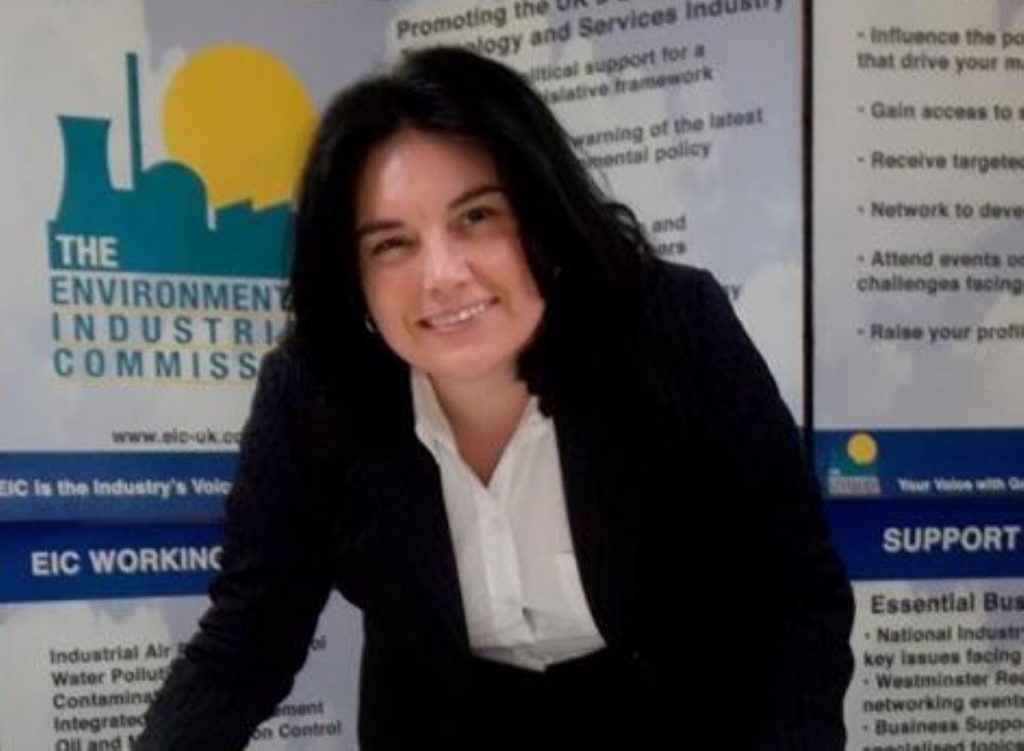Interview: Katy Clark
Katy Clark was in her element at the Royal Mail workers’ rally in Westminster earlier this week. In front of a hall full of people frustrated with New Labour, feeling betrayed by a government more interested in big business than workers, Ms Clark did her bit to make them feel even more infuriated.
“My overriding emotion is one of anger,” she told Communication Workers Union members hungry for more. She explained how the manifesto commitment to keep Royal Mail public was under threat. She described the government’s proposals as an “outrage” and “simply naïve”. And then there was the pensions deficit issue, condemned for being “trundled out” as “absolutely appalling”. “I know if you’re united we’ll stop these stupid proposals,” she finished, to thunderous applause.
Beneath it all was a basic commitment to worker solidarity which, unsurprisingly, has been a common thread throughout her political life. Ms Clark joined the Labour party of the 1980s – the time of the CND and the miners’ strike. It was during the latter that she was approached to join up. Where she lived, in Ayrshire, 10,000 miners were in the process of losing their job. The strike had a “devastating effect,” Ms Clark remembers. “I filled in that form and I’ve never looked back.”
Her political career went through the usual hoops in conventional terms. She stood in 1997 in an unwinnable seat – “that was a very fun campaign” – before being approached for North Ayrshire and Arran in 2005. That decision was not as hugely momentous as it can be for other MPs, however. She had already made the choice between politics and money several years before.


It was just after Tony Blair’s historic first landslide victory that, having been to Aberdeen University and been working in private practice as a solicitor, Ms Clark got a job as a national official for membership legal services at the Unison union. “I had to make a decision – do I want to effectively become a businessperson, or do I want to try and do something different? That was the major decision in terms of direction.”
There was no denying the “very political” nature of the cases she took on at Unison. One she took on is still considered to be one of the biggest ever equal pay cases for women. It was an unusual situation for Ms Clark, therefore, when she found herself invited on to an “open shortlist” for North Ayrshire. That’s New Labour speak for a “seat for a man”.
She was asked to put her name in the hat, but – in the nicest possible way – only to make up the numbers. Gender parity for men and women might be a laudable principle in general, but in this case there was a suspicion among the party faithful it was not being applied entirely correctly. “I wasn’t really interested on that basis. But I was assured. I stood a very good chance, it really was a seat I maybe could win. And as it happens at the end of the day I did win the election. That was a turn-up for the books.”
At the CWU rally earlier this week Ms Clark demonstrated with her actions what she had confided to politics.co.uk: “I’m not New Labour.”
Those views still hold firm. Ms Clark is convinced her opinions are those of the majority of Labour party members. She believes the party let “a small group with their own ideology” take power because they were “desperate for power”. Today Ms Clark is the one labelled as being in a ‘small group’, on the left of the parliamentary Labour party, by those in the middle.
Judging from the reception from the hall of union workers in Westminster on Tuesday, that group is not so small. And Ms Clark remains optimistic that the changing economic climate will bring about a different political climate in parliament as well. While the progressive ends are the same, the difference lies in the pace at which they should be sought. “They’ve been pursuing it [by saying] it’s not actually possible to have radical change for the better. And we’ve got to accommodate the establishment,” Ms Clark explains of New Labour.
“I think what’s happened is our economic system shows the world’s changed quite significantly. Hopefully the political class will wake up to the fact that we’ve got to decide things in a different way than we have before.”
From the miners’ strike of 25 years ago to the current controversy over Royal Mail’s future, Ms Clark’s political sympathies have always been closely aligned with the union movement. She continues to take up many of the issues that affect trade union members, like poverty and low pay. And she realises she made the choices she did because she wasn’t interested in the high-paying career which could have been hers.
“It seems to me we’re only, as far as we know, on this planet once. The least we can do is try and do what we can to make it a bit more bearable.” Most MPs would agree with that. But not all are as impatient to achieve the changes needed.
Katy Clark was talking to Alex Stevenson












